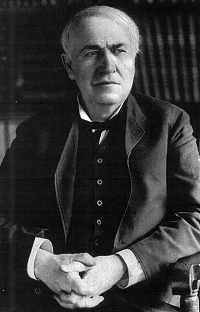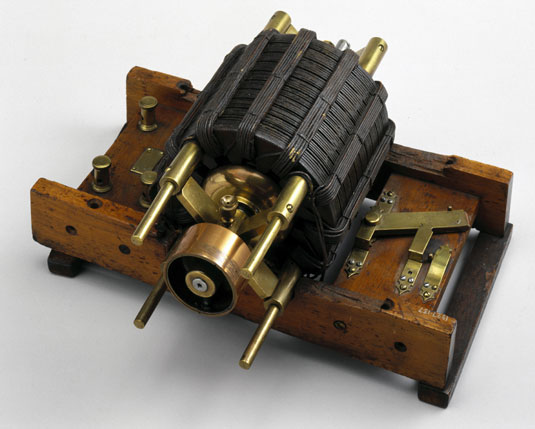Edison's DC Vs. Tesla's AC


http://www.ideachampions.com/weblogs/archives/2011 /03/_i_make_more_mi.shtmlhttp://www.nndb.com/people/334/000022268/
Thomas
Edison
Nikola
Tesla
During the 1880s Edison's direct current system was the power system that lit up the homes of the United States. It powered motors, charged batteries and lit up incandescent bulbs for the American people. Tesla, a disgruntled former employee of Edison envisioned a better electrical system he called the polyphase system to create, transport and utilize electrical energy.
One of the problems with Edison's DC current system was that it couldn't be stepped up to high voltages for easy transportation along power lines. The advantage of Tesla's AC power was that it allowed for distributing power over a distance is due to its ease of changing voltages using a transformer. At the load, available power is the product of current and voltage. For a given amount of power, a low voltage requires a higher current and a higher voltage requires a lower current. Since metal conducting wires have an almost fixed electrical resistance, some power will be wasted as heat in the wires. This power loss is given by Joule's laws and is proportional to the square of the current. Thus, if the overall transmitted power is the same, and given the constraints of practical conductor sizes, high-current, low-voltage transmissions will suffer a much greater power loss than low-current, high-voltage ones. This holds whether DC or AC is used. (1)
Edison's electrical system required booster stations about every two miles along electrical lines to keep the current flowing. His system also required huge copper conducting lines to carry his current. Tesla's system could step up the voltage at the source using transformers and carry the current for hundreds of miles with relatively low losses of energy.
Tesla partnered with Westinghouse to develop the AC technology. Together they constructed the first power generating system on Niagara Falls in 1893. This AC power generation plant demonstrated once and for all that Tesla's AC system was far superior to Edison's DC current. From that point on the world has used Tesla's AC.
Tesla's Induction Motor
In order to make AC power a feasible system, Tesla and Westinghouse filed dozens of patents including the Induction Motor. This motor uses electromagnetic induction to spin the rotor. This was such an important advancement in utilizing AC current that it has been called one of the top ten greatest discoveries of all time.
It has been said that Tesla came up with the theory of the induction motor in his head walking in a park one day. He sketched the design with a stick in the sand that day in the park.

http://www.sciencemuseum.org.uk/images/I056/10323395.aspx
This Image shows the rotating magnetic field that the induction motor utilizes

http://en.wikipedia.org/wiki/Induction_motor
Home